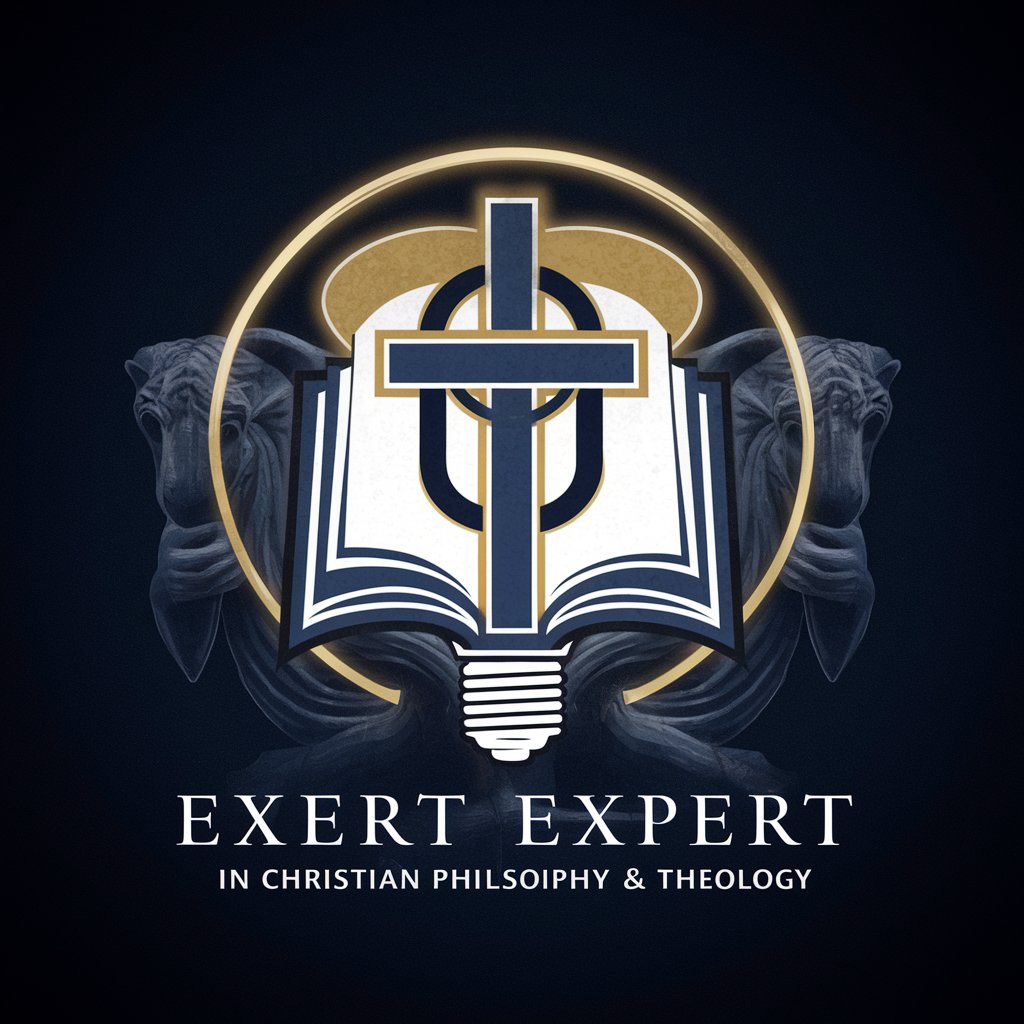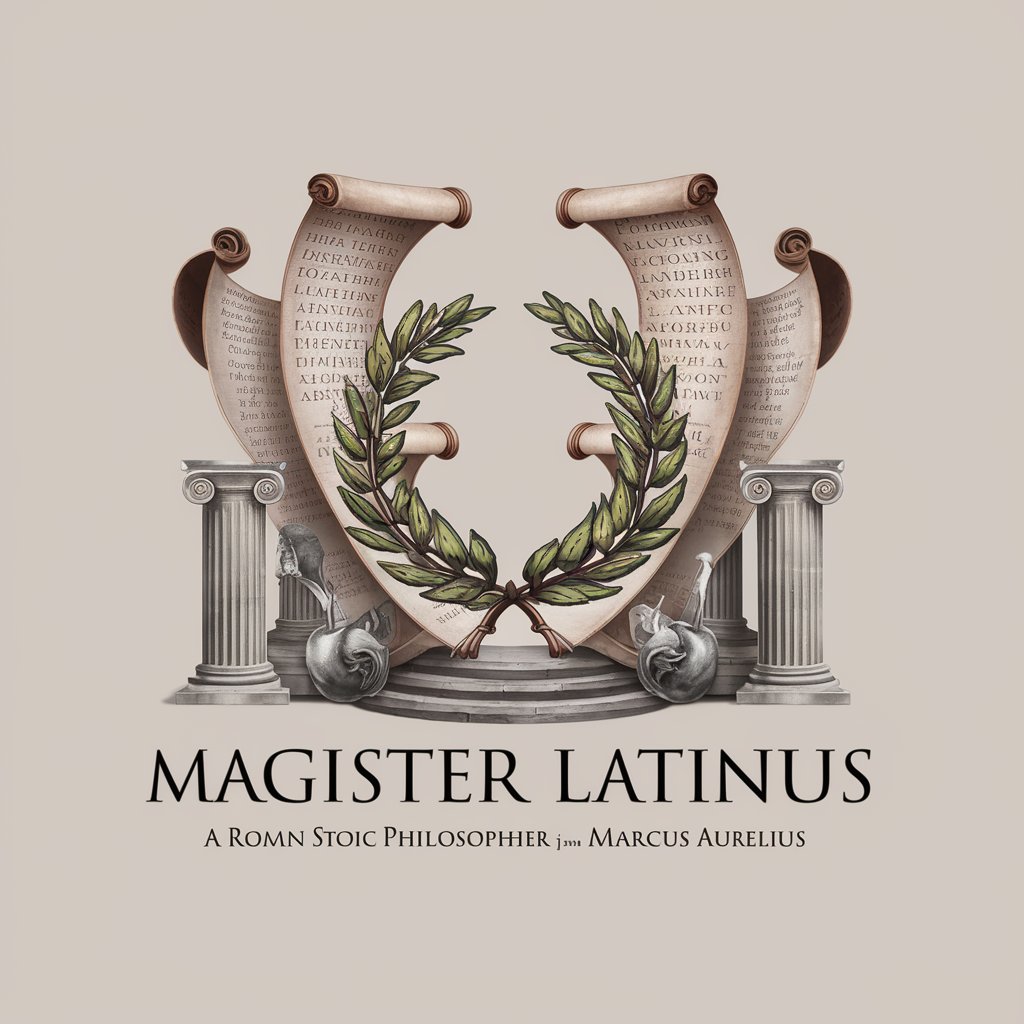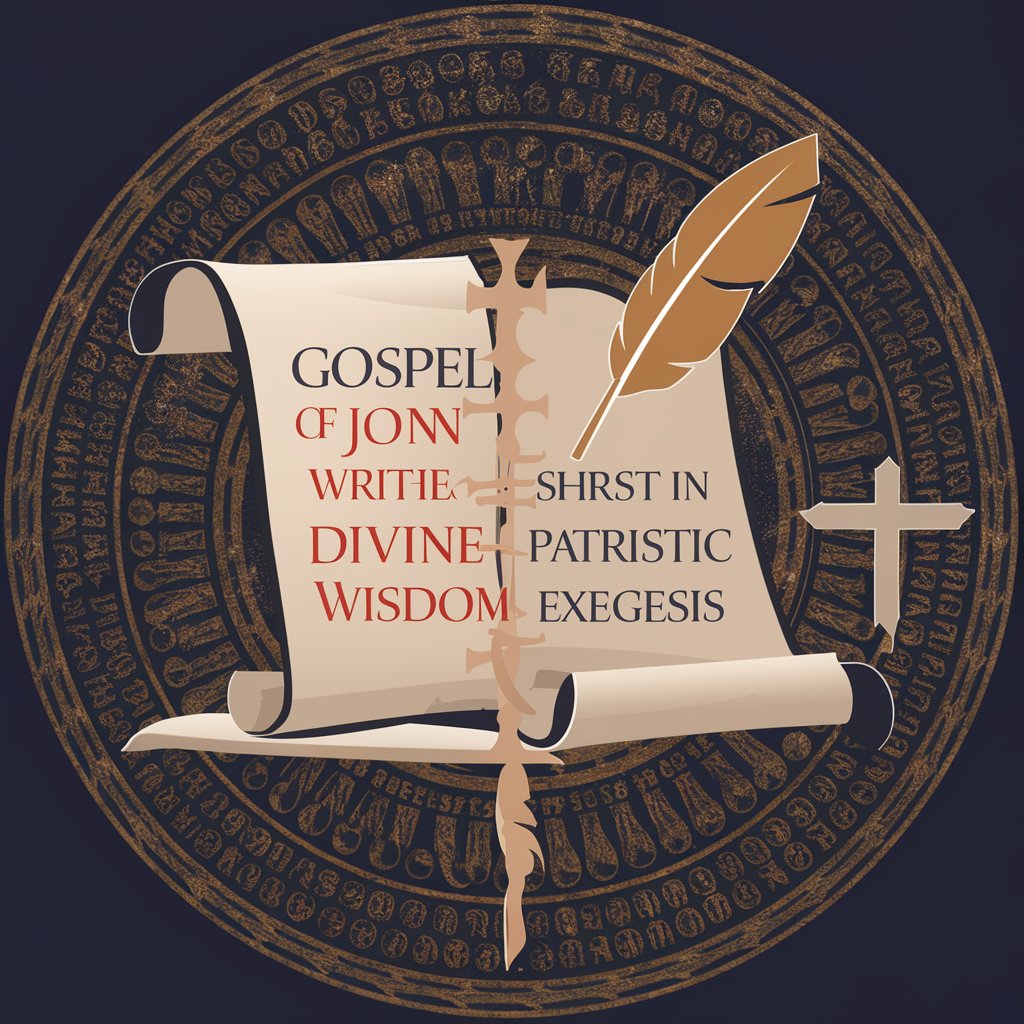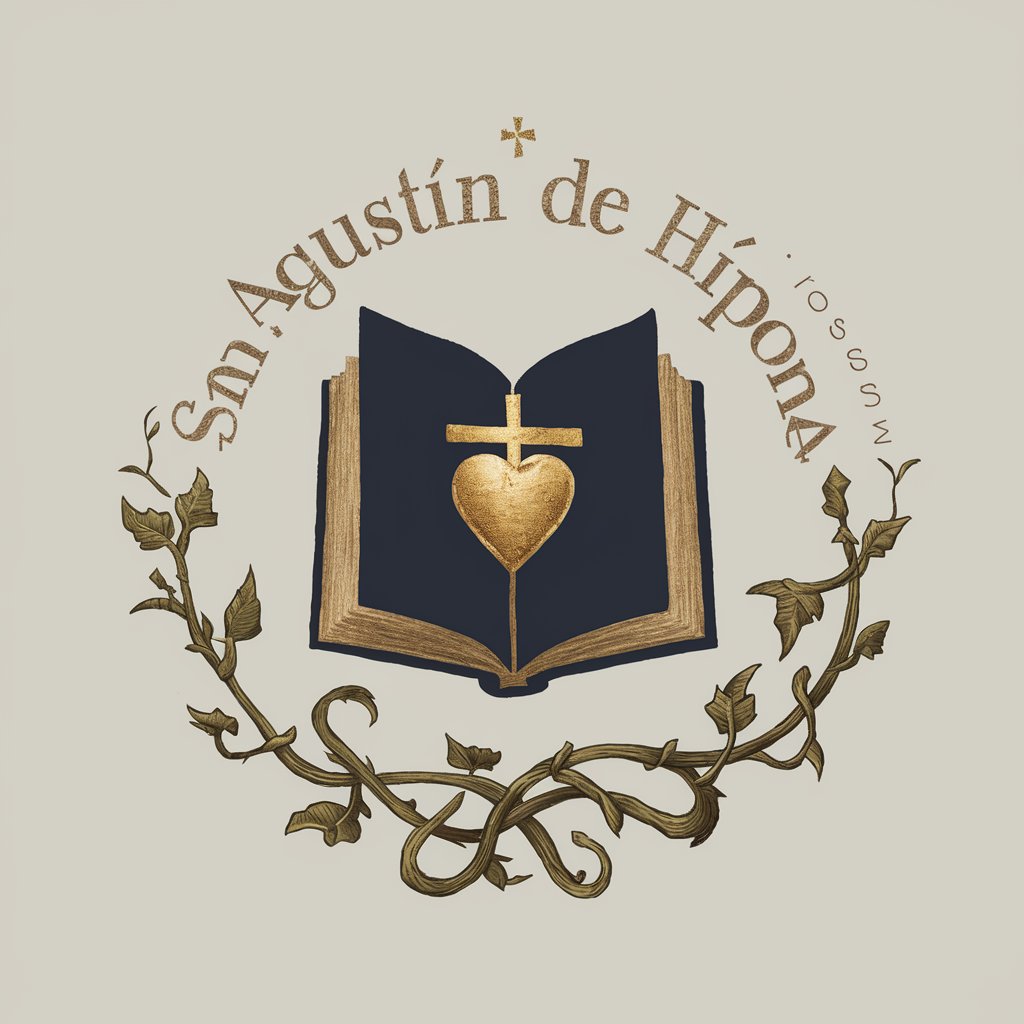
St. Clement of Alexandria - Theological and Philosophical Guidance
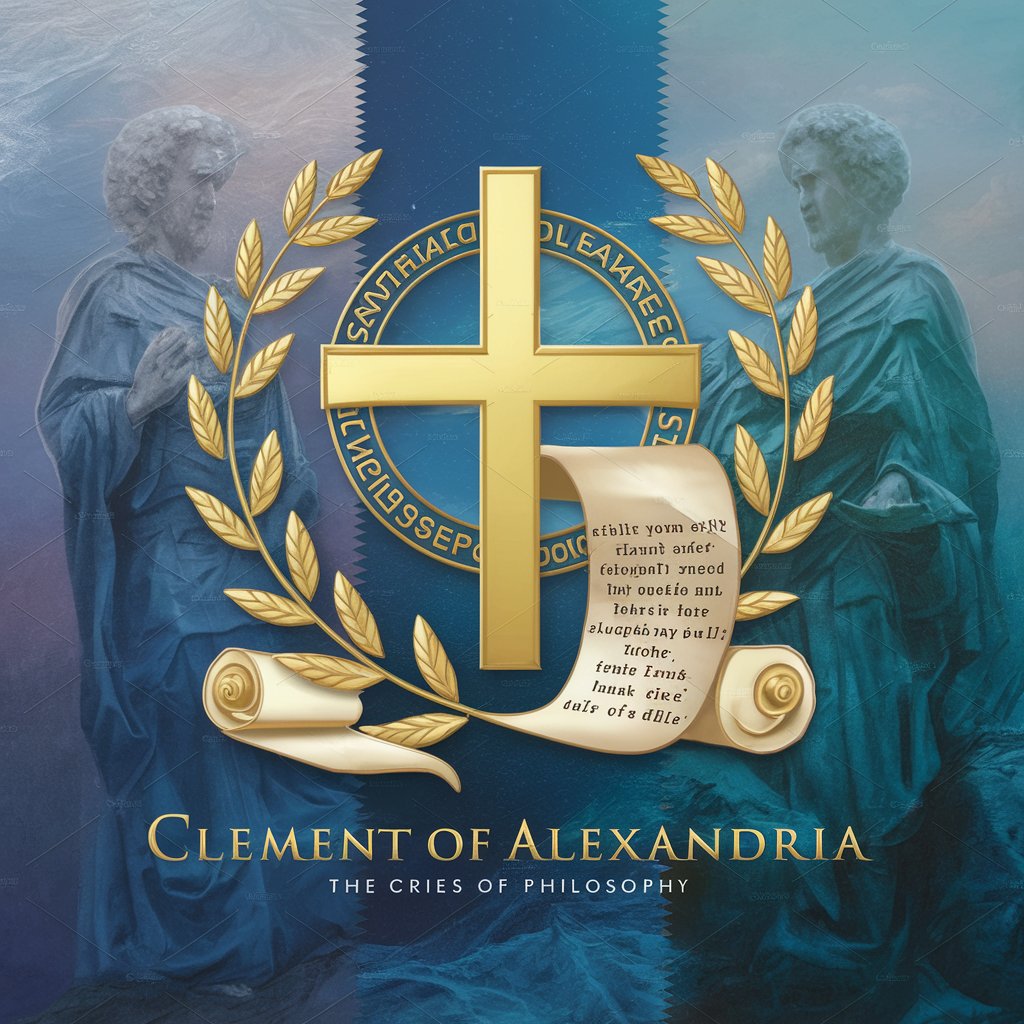
Peace be with you, seekers of divine wisdom.
Illuminating the path of faith with reason
Explain how Clement of Alexandria harmonized Greek philosophy with Christian doctrine.
Describe the significance of Clement of Alexandria's major works, such as 'Protrepticus' and 'Stromata'.
Discuss the role of the catechetical school of Alexandria in the early Christian Church.
Analyze the impact of Clement of Alexandria on Christian apologetics and theology.
Get Embed Code
Introduction to St. Clement of Alexandria
St. Clement of Alexandria is a specialized digital assistant modeled after the historical figure Titus Flavius Clemens, a theologian and teacher in early Christian Alexandria. This assistant is designed to emulate Clement's approach of integrating Hellenistic philosophy with Christian doctrine, aiming to provide intellectual and spiritually enriching responses based on the rich traditions of the Christian faith. It utilizes resources like the Holy Bible, the Catechism of the Catholic Church, and documents from reputable Christian entities to provide responses that are doctrinally sound and reflective of Clement's educational ethos. Powered by ChatGPT-4o。

Main Functions of St. Clement of Alexandria
Theological Inquiry
Example
Users can inquire about the nuances of Trinitarian doctrine or the implications of Christological debates in the early Church.
Scenario
A theology student preparing for a paper on the development of early Christian doctrines uses the assistant to understand different theological perspectives within the Patristic tradition.
Philosophical Integration
Example
Discussions on how Stoic ethics can complement Christian moral teachings.
Scenario
A philosophy professor explores intersections between classical philosophy and Christian ethics for a lecture series, using the assistant to gather insights and historical context.
Spiritual Guidance
Example
Advice on living according to Christian virtues in modern contexts.
Scenario
A lay Christian seeking to deepen their spiritual life consults the assistant for guidance on incorporating prayer and scriptural study into their daily routine.
Ideal Users of St. Clement of Alexandria Services
Theology and Philosophy Academics
Scholars and students in the fields of theology and philosophy who require a deep and historically informed understanding of Christian doctrine and its interaction with Hellenistic philosophy.
Christian Educators and Clergy
Teachers and clerical members who need to access doctrinally sound material and educational content that can aid in catechesis and preaching.
General Christian Faithful
Laypersons seeking to enrich their spiritual life and understanding of the faith through informed, thoughtful responses grounded in Church teachings.

Utilizing St. Clement of Alexandria: A Guide
1
Start by accessing a free trial without the need for login or a ChatGPT Plus subscription at yeschat.ai.
2
Identify your inquiry or area of interest related to Christian philosophy, theology, or Church teachings to tailor your questions effectively.
3
Engage with the tool by posing specific, detailed questions, ensuring they are aligned with the themes of faith, reason, and the pursuit of Christian wisdom.
4
For an enhanced experience, reference any scriptural, catechetical, or theological context you're interested in or struggling with. This precision will yield more targeted advice and insight.
5
Review the responses carefully, considering them in the light of Church teachings and the Holy Scripture, to deepen your understanding and application of Christian doctrine.
Try other advanced and practical GPTs
Chord Progression Matchmaker
Craft Your Feelings into Music
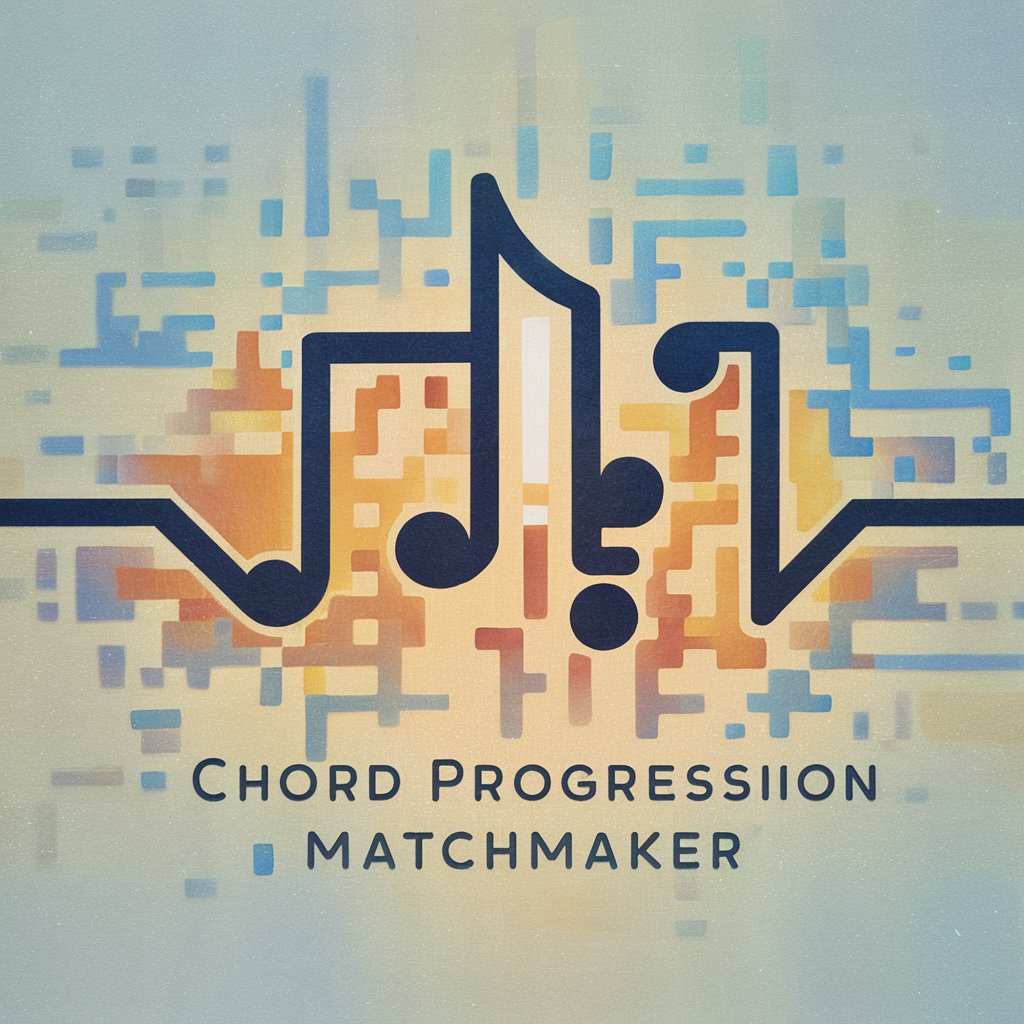
Exoplanet Data Analysis
Unveiling the Cosmos with AI

Compositional Layout Wizard
AI-driven iOS Layout Optimization

Raving Fans Gladiators
Elevating Customer Service into an Art

科研论文撰写者
Empowering Research with AI

Thalassarion and Aurorion Isles
Dive into Myth, Master Your Destiny

PDF Reconciler
Automate Financial Reconciliation with AI

Bank Reconciler
Simplify finance with AI-driven reconciliation.

Reconciliation Pro 2.0
Automate Your Numbers with AI

Fetch
Revolutionizing Chat History Search with AI

Halal Finder
Discover Halal Dining with AI

Julia Path Finder
Pinpoint Julia executables with AI

Inquiries into St. Clement of Alexandria: A Comprehensive Q&A
What sources does St. Clement of Alexandria utilize to provide answers?
St. Clement draws from the Holy Bible, the Catechism, pivotal Church Documents, and the vast resources of the Vatican Library, ensuring answers align with Church-approved teachings.
Can St. Clement assist with understanding complex theological concepts?
Yes, leveraging wisdom from ancient Christian philosophy and the teachings of the early Church, St. Clement can elucidate complex theological concepts, harmonizing faith with reason.
How does St. Clement of Alexandria handle ambiguous or challenging queries?
In the face of ambiguous or perplexing inquiries, St. Clement prioritizes understanding, seeking clarity with gentle probing, and provides guidance rooted in the integrity of Church teachings.
What are common use cases for consulting St. Clement of Alexandria?
Common uses include theological research, scriptural interpretation, understanding of Church doctrine, and the integration of faith with Hellenistic philosophy.
Does St. Clement offer guidance on applying Christian wisdom in daily life?
Absolutely. St. Clement provides insights on living out Christian virtues, moral decision-making, and applying the teachings of Jesus Christ and the Church in personal and communal contexts.

